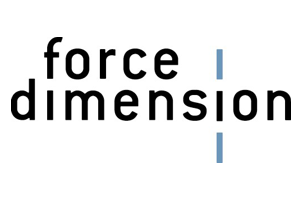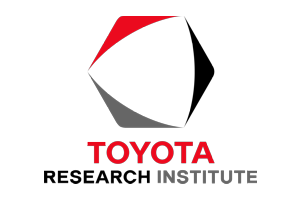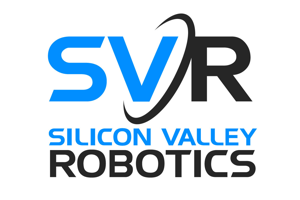Workshops and Tutorials
All workshops and tutorials take place in the Cyril Magnin rooms 1–3 on Tuesday, December 13. Throughout the day, coffee will be served, such that organizers are free to schedule their own coffee breaks and lunch break. Coffee is included in the W/T registration fee. Organizers and W/T participants should make their own lunch arrangements.
| Title | Organizer | Room | Time |
| Combining Optimal Control, Reinforcement Learning and Movement Primitives to Achieve Better Robot Motions | Katja Mombaur | Cyril Magnin 1 | 8:45–17:00 |
| Grand Challenges in Robotic Simulation | Evan Drumwright | Cyril Magnin 2 | 8:00–17:00 |
| Tutorial: Modeling and Simulating Mechanical Rigid-Body Systems Using Siconos (Half-Day, Morning) | Vincent Acary and Stephen Sinclair | Cyril Magnin 3 | 8:00–12:00 |
| The Role of Simulation in Robot Programming (Half-Day, Afternoon) | Maria Gini and Enrico Pagello | Cyril Magnin 3 | 13:00–17:00 |
Combining Optimal Control, Reinforcement Learning and Movement Primitives to Achieve Better Robot Motions
Organizer: Katja Mombaur, IWR, Optimization in Robotics and Biomechanics, University of Heidelberg, Germany
Website: http://www.orb.uni-hd.de/conferences-workshops/simpar2016/
Time: Tuesday, Dec 13, 8:00–17:00
Room: Cyril Magnin 1
Generating and controlling motions for complex robot systems such as humanoid robots is a challenging task. Model-based optimization, reinforcement learning and movement primitives represent three different bio-inspired approaches to tackle this issue. In this workshop, state of the art methods of all three fields are presented, and a special focus is put on how to best combine them to take the advantages of all approaches. Particular attention is paid to the application of whole-body motions wit changing contacts such as walking and balancing motions. Optimal control takes models of the robots at different levels of complexity as well as environmental constraints into account and can be used to exploit the physical limits of a robot. Optimal control can be performed in the offline and online modes (the latter often referred to as model-predictive control), but in all cases the model-reality mismatch has to be taken care of. Reinforcement learning can be performed without any model, but based on the real system, but for complex systems it may be very difficult to find feasible solutions that are feasible at all, so many iterations may fail. Movement primitives are very common in robotics, especially for transferring motions from humans to robots, with many fundamentally different variants of primitives around. The workshop will present latest research in all of these areas as well as new ideas for combinations and their applications to challenging robotics problems.
Grand Challenges in Robotic Simulation
Organizer: Evan Drumwright, Toyota Research Institute, USA
Website: https://positronicslab.github.io/simpar2016-simulation-grand-challenges-workshop/
Time: Tuesday, Dec 13, 8:00–17:00
Room: Cyril Magnin 2
After decades of robotic simulations focusing on modeling the dynamics of manipulators, the past decade has seen the introduction and widespread adoption of quality software libraries for simulating the dynamics and sensors of dexterous robots interacting with semi-realistic virtual environments. These libraries, and the algorithms that make them possible, are poised to be the scaffolding that supports virtual prototyping, robust planning, model predictive control, machine learning, and robot testing for the foreseeable future.
Significant challenges clearly remain until approaches become sufficiently robust, fast, and accurate for the two key tasks of robotic manipulation (including grasping) and locomotion. But what about after those problems are “solved”? We hope to identify the robotic tasks for which successful simulation would have the greatest impact on robotics research and industry. This workshop aims to discover the grand challenges the simulation research community should tackle.
Tutorial: Modeling and Simulating Mechanical Rigid-Body Systems Using Siconos (Half-day, Morning)
Organizer: Vincent Acary and Stephen Sinclair, Inria, Chile
Website: http://siconos.github.io/simpar2016
Time: Tuesday, Dec 13, 8:00–12:00
Room: Cyril Magnin 3
Siconos is a system (C++ framework with Python wrapper) for modeling and numerically simulating non-smooth dynamical systems. At a mathematical level, it allows to specify models as a set of dynamical systems constrained by interactions based on relations measured on their state vectors. On this is built a variety of higher level frameworks including systems for mechanical rigid body modeling, electrical circuits, and biological networks. In this tutorial we will demonstrate and explain how to use Siconos for modeling robotics-related mechanical systems, and use them for interaction with large-grain granular materials.
The Role of Simulation in Robot Programming (Half-day, Afternoon)
Organizer: Maria Gini, University of Minnesota, USA and Enrico Pagello, University of Padua, Italy
Website: https://sites.google.com/a/umn.edu/simulation-in-robot-programming/home
Time: Tuesday, Dec 13, 13:00–17:00
Room: Cyril Magnin 3
Robot programming has changed a lot in the more than 40 years since the Stanford AI Lab demonstrated the value of high-level programming languages for robotics with the language AL. Among the many changes, as robotic systems have become more complex, simulation has taken an increasing role in the process of programming the robots. The workshop will provide a venue to discuss the role of simulation in modern robot programming, with time to share current research highlights and discuss future directions with researchers and practitioners.
















